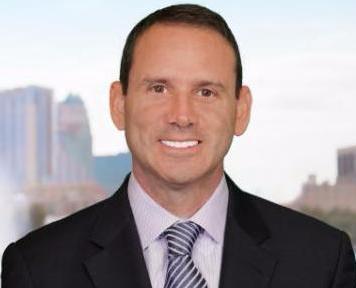There is an eerie quietness that can often be felt after a disaster like a hurricane of flash flooding, the time after the rain has stopped but the sun still hasn’t returned. Returning to business as usual after your community has faced a natural disaster can be difficult, the responsibilities can seem endless but there are some steps you can take to ensure that your community is as strong and thriving as before.
2023 has been a challenging year in every regard, not the least of which has been related to the Atlantic Hurricane Season, the most active since 2005. With over 23 named storms, including eight hurricanes and over 24 tropical or subtropical cyclones, it’s easy to see why so many are patiently waiting for the storm season to come to a close. Officially over on November 30th, the damage done to many communities will continue to affect homeowners and HOA board members alike. We’ve previously discussed implementing a disaster plan for your community but what comes after the storm can be just as important.
Failure to immediately mitigate post storm damage can have detrimental consequences for homeowners and the community in general, which is why it’s tantamount that you are prepared to take quick decisive action after a storm and know the steps involved. Please check with your communities insurance agent and your licensed community staff to determine if your state has any specific laws regarding the association and its responsibilities after a natural disaster.
Communication Is Key
Following a storm, whether it be a hurricane or simple hail damage, communicating with homeowners is by far the most important and often overlooked step that the community association can take. Often an emotional and overwhelming time for any resident, damage to the homes in your community can take many forms and can be addressed in various ways so it’s important for your board to keep an open line of communication with your owners so they are aware what steps are being taken by your association and what they will need to be responsible for in the aftermath.
In some states the board’s first challenge may be to understand whether to look to the communities Declarations and Bylaws or to the State and Local laws to determine who is responsible for what. In Florida for instance, the Florida Condominium Act can assign certain responsibilities to the association that they would not normally be involved with and can be in direct opposition to existing declarations at the community. We highly recommend communicating regularly with members of your licensed local community staff and your insurance providers to ensure that you are doing all of the right things to ensure your communities return to harmony.
Inspect for Damage
You may want to start with the simple process of inspecting your community for damages. Buildings suffering damage should have been secured from further water intrusion, through temporary roofs, boarded windows, and sliding glass doors, which will need to be replaced. Construction debris from the storm should have been be removed or at least contained.
Every unit should have been inspected by the Association, preferably on several occasions, to ensure that there is no moisture to the interior of the units. Moisture detected, on areas such as wet carpets or soggy drywall, should have been removed. The drying process can typically be accomplished through interior climate manipulation through dehumidification, heating and/or air conditioning. The association’s insurance adjuster should be involved throughout the dry-out process. For more complex water intrusion dry out, an outside neutral party should also be involved.
Every association and unit owner should have contacted their insurance carriers to file insurance claims. Associations should ensure that every insurance carrier with potential responsibility has been put on notice. At this point, if the adjuster has not yet visited the premises, this should be immediately addressed with your insurance agent. Your insurance adjuster will attempt to document the site, but the association should document existing conditions by taking pictures and video of the damage.
Finding Experts for the Repairs
After all units have been inspected for damage and the appropriate representatives have been notified you can begin the process of finding contractors or storm damage experts to help start the repairs Associations with buildings that have incurred moderate to significant damage should retain an independent consultant such as an architect or engineer, with no financial stake in developing the repair specifications. Often, this will be an architect or structural engineer, and may even be a type of qualified consultant for particular items. Condominium documents often require a reconstruction plan to be prepared by an architect or engineer.
Contractors should be appropriately licensed in your state for the type of work they will be performing, carry adequate insurance, and so forth. Although time is of the essence in moving forward with hurricane damage repair projects, a great deal of money is involved and the association can best protect itself by ensuring that there is appropriate legal review of any contracts or other documents. General contractors and many specialty contractors must be registered with the state. Licenses and complaints against such entities can often be checked online or can be requested from your community management company if they are providing the contractors.
Making Emergency Repairs
In the event that homeowners have damages that pose additional risk or could lead to additional losses, it’s important to make some emergency repairs. Again knowing that communication and documentation are vital, try to document all of the necessary repairs and the steps taken to make those repairs, using photographs and dated records can help in the event that there is any dispute on the timeline or the necessity of the repair with insurance later.
In many cases the emergency repairs can be temporary and may require additional maintenance when the insurance company has settled on a permanent solution. These temporary repairs can include things like using a tarp on a leaking roof or adding plywood to broken doors and windows, and the cost may initially come out of the owners pockets but can be reimbursed at a later date by the insurance company.
The Vital Role of Insurance Professionals
Throughout this article and the process of rebuilding one thing remains constant, the need to be continually consulting with your insurance company and the experts they employee. Dealing with damage to your home is never pleasant and it can become almost impossible when the board needs to deal with their own home damage plus the overall community health and rebuilding. It is important to determine who insures which portion of the condominium property because the statute provides that the person or entity that insures the property is also the person or entity who repairs that portion of the property. Generally, any portion of the condominium property that must be insured by the association and which is damaged by a casualty or insurable event, will be repaired by the condominium association and the costs of such repair will be assessed as a common expense against all unit owners. Unit owners are responsible for repairing any portions of the condominium property that it is required to insure and the cost of such repairs to be paid by the owner of the unit that suffered the damage.
In conclusion, if your condominium suffers damage due to a hurricane or another storm event, the association will need to consult with its insurance agent and its legal counsel to determine if the damage suffered was due to a casualty, or insurable event, and thereafter decide who will need to repair the damage and pay for the costs of such repair. Prompt action must be taken to protect the condominium property and the association. If your association needs further guidance on this issue, it should consult with its attorney or the knowledgeable management staff.







 Kaye Bender Rembaum is a full service commercial law firm devoted to the representation of community associations throughout Florida. Under the direction of attorneys Robert L. Kaye, Esq., Michael S. Bender, Esq., and Jeffrey A. Rembaum, Esq. Kaye Bender Rembaum is dedicated to providing clients with an unparalleled level of personalized and professional service regardless of their size and takes into account their individual needs and financial concerns. Most of our attorneys are Board Certified in Condominium and Planned Development Law. The associates of Kaye Bender Rembaum establish relationships with clients to understand their needs and goals. Kaye Bender Rembaum assists clients in all matters of Association representation including, but not limited to, collection of assessments, contract negotiation, covenant review and amendment, covenant enforcement and construction defect claims. Kaye Bender Rembaum also keeps clients up-to-date on new developments in the law and how they are personally affected by them. Kaye Bender Rembaum provides prompt, effective, high quality, cost-efficient and understandable legal advice and services to a diverse client base. Associates strive to help clients operate and administer their communities better and to educate them on their responsibilities and duties under Florida law and their governing community documents. Robert Kaye, Michael Bender and Jeff Rembaum are industry leaders who are often sought out by public policy makers and the media for advice and commentary on community association law. Offices in Broward, Palm Beach, Orange and Hillsborough Counties, as well as Miami-Dade by appointment. The information you obtain at this site is not, nor is it intended to be, legal advice. You should consult an attorney for individual advice regarding your own situation. Thank you for your interest in Kaye Bender Rembaum.
Kaye Bender Rembaum is a full service commercial law firm devoted to the representation of community associations throughout Florida. Under the direction of attorneys Robert L. Kaye, Esq., Michael S. Bender, Esq., and Jeffrey A. Rembaum, Esq. Kaye Bender Rembaum is dedicated to providing clients with an unparalleled level of personalized and professional service regardless of their size and takes into account their individual needs and financial concerns. Most of our attorneys are Board Certified in Condominium and Planned Development Law. The associates of Kaye Bender Rembaum establish relationships with clients to understand their needs and goals. Kaye Bender Rembaum assists clients in all matters of Association representation including, but not limited to, collection of assessments, contract negotiation, covenant review and amendment, covenant enforcement and construction defect claims. Kaye Bender Rembaum also keeps clients up-to-date on new developments in the law and how they are personally affected by them. Kaye Bender Rembaum provides prompt, effective, high quality, cost-efficient and understandable legal advice and services to a diverse client base. Associates strive to help clients operate and administer their communities better and to educate them on their responsibilities and duties under Florida law and their governing community documents. Robert Kaye, Michael Bender and Jeff Rembaum are industry leaders who are often sought out by public policy makers and the media for advice and commentary on community association law. Offices in Broward, Palm Beach, Orange and Hillsborough Counties, as well as Miami-Dade by appointment. The information you obtain at this site is not, nor is it intended to be, legal advice. You should consult an attorney for individual advice regarding your own situation. Thank you for your interest in Kaye Bender Rembaum.











